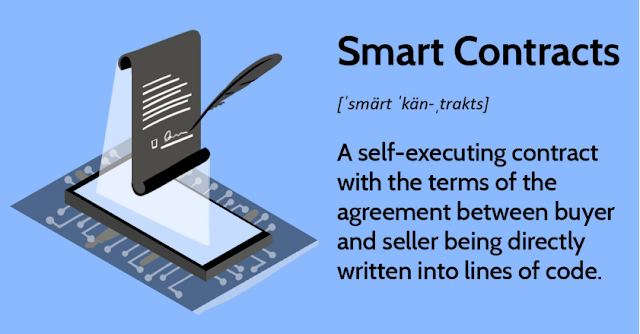Introduction
Buckle up, folks! It's time to dive into the world of blockchain development. With the technology's rapid growth, blockchain developers have become highly sought-after professionals in the tech industry. So, what does it take to become one? Here, we'll explore the 7 must-have skills for blockchain engineers, and you bet your boots we'll give you the inside scoop on how to master them.→ 1. Becoming a Cryptography Connoisseur
Blockchain is deeply rooted in security, and cryptography serves as its foundation. To become an adept engineer, you need to:- Comprehend the inner workings of various cryptographic algorithms such as SHA-256 and Scrypt, which ensure secure transactions and data storage
- Gain familiarity with public and private keys, digital signatures, and hashing functions to maintain the integrity of transactional data
- Learn how to implement cryptographic techniques to safeguard data integrity, prevent unauthorized access, and ensure confidentiality in blockchain applications
→ 2. Programming Languages: Broadening Your Horizons
A blockchain developer's prowess is measured by their command over multiple programming languages. Familiarizing yourself with a diverse set of languages will make you a versatile and valuable asset in the industry. Key languages include:- Solidity for Ethereum-based projects, enabling the development of smart contracts and decentralized applications
- JavaScript for crafting seamless user interfaces, integrating with blockchain platforms, and handling client-side logic
- Python for backend development, scripting, and rapid prototyping due to its simplicity and readability
- C++ for performance-critical tasks, providing a deeper understanding of memory management and enabling efficient blockchain implementations
→ 3. Mastering the Art of Smart Contracts
Smart contracts are self-executing, programmable agreements with the terms directly embedded into code. To develop, deploy, and manage smart contracts, you need to:- Delve into the intricacies of Ethereum, the leading smart contract platform, and its underlying architecture
- Master Solidity or other smart contract languages like Vyper to create secure and efficient contracts
- Grasp key concepts such as decentralized applications (dApps) and decentralized autonomous organizations (DAOs), which revolutionize traditional business models
→ 4. Gaining Expertise in Distributed Ledger Technologies (DLT)
Blockchain is a subset of distributed ledger technology, and expanding your knowledge beyond just blockchain is essential. To become a DLT expert, you should:- Explore various DLTs like Hyperledger, Corda, and Quorum, which cater to different industries and use cases
- Understand consensus algorithms like Proof of Work, Proof of Stake, and Delegated Proof of Stake, which ensure transaction validation and network security
- Evaluate the pros and cons of different DLTs to identify the most suitable solution for specific applications and requirements
→ 5. Navigating the World of Networking Fundamentals
Blockchain networks are composed of interconnected nodes, making networking concepts crucial for blockchain engineering. To sharpen your networking skills, make sure you:- Learn about the OSI model, TCP/IP, and peer-to-peer (P2P) networking to comprehend the basic structure of communication protocols
- Familiarize yourself with network protocols, packet routing, firewalls, and other security measures to maintain network integrity
- Grasp the importance of network security and potential vulnerabilities, enabling you to develop more secure and robust blockchain solutions
→ 6. Cultivating Problem Solving and Critical Thinking Prowess
Being a standout developer entails having a keen ability to solve complex problems and think critically. To nurture these skills, you should:- Break down problems into smaller, manageable components, enabling you to better understand their intricacies and devise targeted solutions
- Identify potential solutions and weigh their feasibility, considering factors such as time, resources, and impact
- Stay proactive in learning about emerging technologies, keeping abreast of industry trends, and adapting to the ever-changing blockchain landscape that everyone is on the same page and can make informed decisions
- Develop your listening skills to better comprehend others' perspectives, needs, and concerns, fostering a more collaborative and inclusive environment
- Learn how to work effectively within a team, coordinating with colleagues, sharing knowledge, and supporting each other in the pursuit of common goals
→ 7. Excelling in Communication Skills
Strong communication skills are indispensable for blockchain devs, as they facilitate effective collaboration and the exchange of ideas. To excel in this area:
- Refine your ability to clearly articulate complex concepts to non-technical stakeholders, ensuring that everyone is on the same page and can make informed decisions
- Develop your listening skills to better comprehend others' perspectives, needs, and concerns, fostering a more collaborative and inclusive environment
- Learn how to work effectively within a team, coordinating with colleagues, sharing knowledge, and supporting each other in the pursuit of common goals
Frequently Asked Questions
Q: How can I develop the 7 must-have skills for blockchain developers?
A: Consider the following steps:
- Enroll in online courses, attend workshops, or pursue specialized certifications to learn about cryptography, programming languages, smart contracts, and distributed ledger technologies.
- Practice programming in languages like Solidity, JavaScript, Python, and C++ through hands-on projects and coding exercises.
- Engage with online communities, attend industry events, and network with other developers to learn from their experiences and stay updated on the latest trends.
- Work on personal or open-source blockchain projects to gain practical experience and showcase your skills.
- Invest time in enhancing your problem-solving, critical thinking, and communication skills through practice, self-reflection, and seeking feedback from others.
Q: Which programming languages are most important for blockchain engineers?
A: Some of the most important programming languages for Web3 devs include:
- Solidity for Ethereum-based smart contracts
- JavaScript for user interface development and client-side interactions
- Python for backend development, scripting, and rapid prototyping
- C++ for performance-critical tasks and efficient blockchain implementations
However, the importance of each language may vary depending on the specific blockchain platform or project.


No comments:
Post a Comment